The ball hits the ground and then the bushes. A few girls grin. Laxmi, one of the smallest – and boldest, laughs aloud. I was never good at team sport, and cricket just seems to revive that uncomfortable experience back from my own school days. Except this time I don’t mind. The girls are having fun and so am I. I try another ball and this one hits the target. Laxmi, the batter, wacks the ball far away over his own head and into the garden. Soon all the girls are on their feet, searching the garden for their only cricket ball. We can’t find it and start playing running games instead.
The campus of VOICE Sanjivani is located a little more than an hour outside of Mumbai. Here it feels like nature and wilderness are the hosts again already, and us merely guests in their habitat. The campus itself consists of but one long, two-storied building with a couple with different wings, a yard and two gardens. This is where more than thirty orphan girls of 7 to 18 years study, live, cook, clean and play together and where AES, the organization I am interning at, spends most of their efforts and time at. As an external educational source, AES tries to provide a practically designed and at the same time educationally relevant program on permaculture, sustainability and its practical implementations in urban or rural environments. The girls learn how to garden, compost their food, use solar energy and apply water management practices in their own little ecosystem of the orphanage. In the end this ideally makes them facilitators of permaculture practices and teachers to other kids and adults.
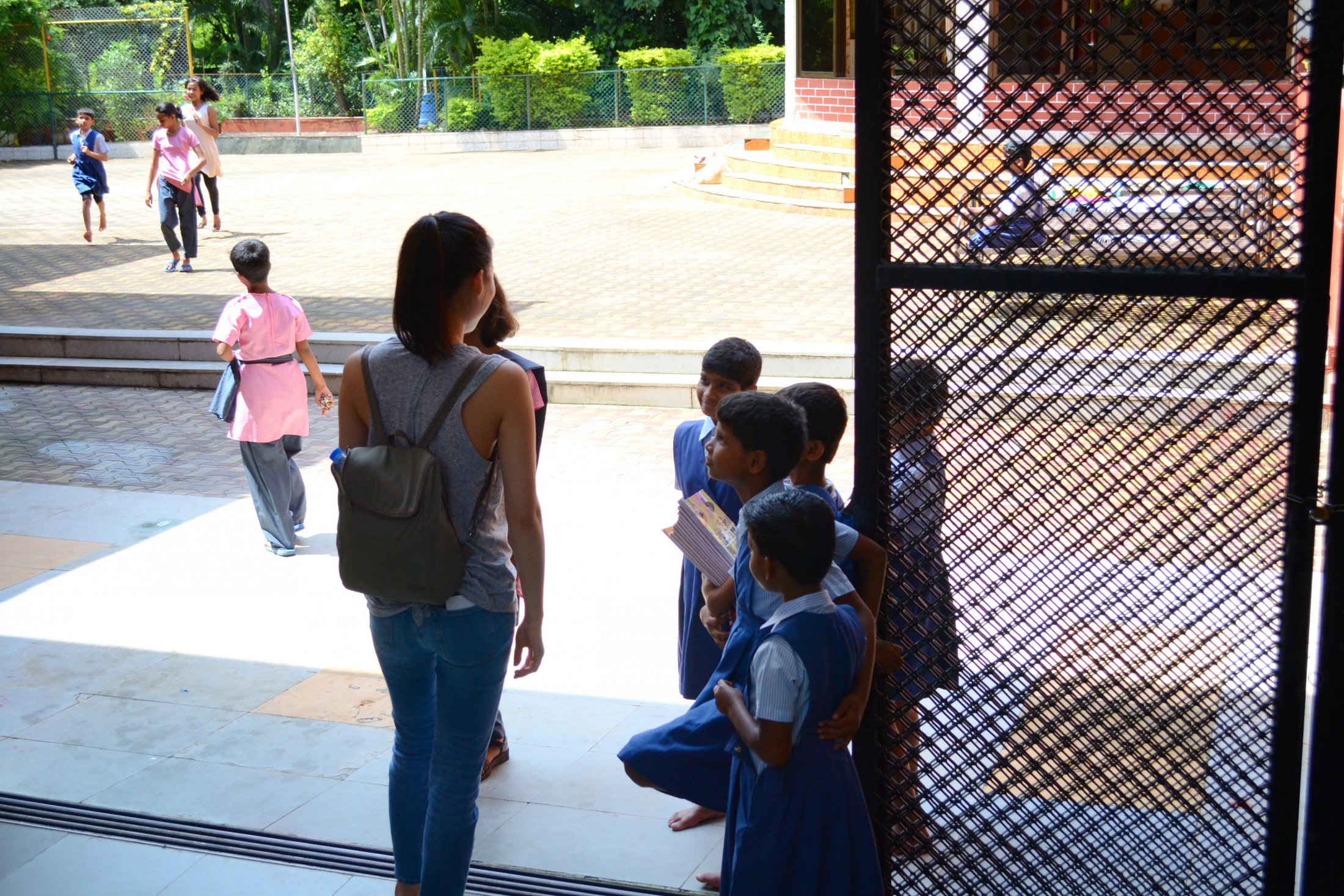
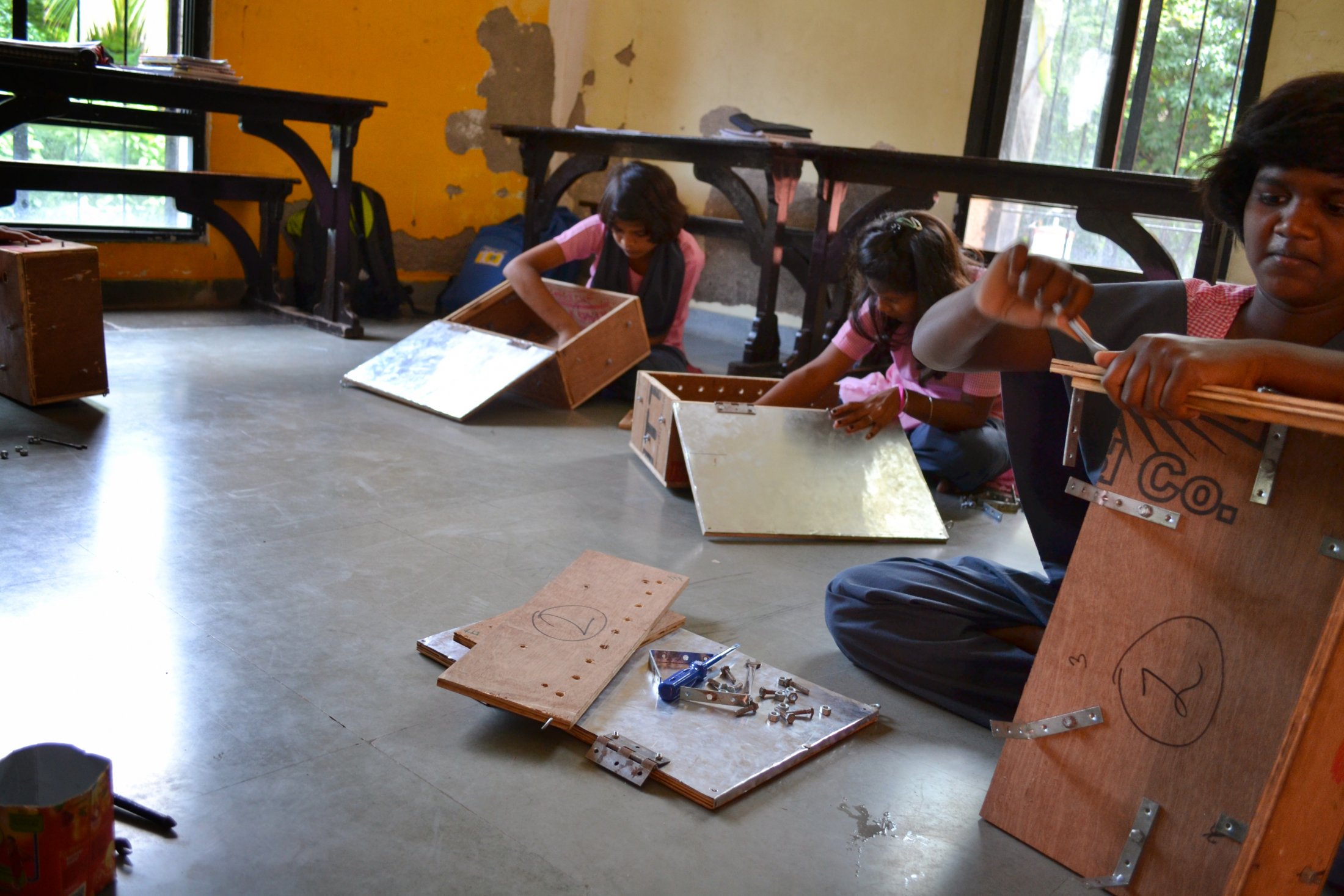
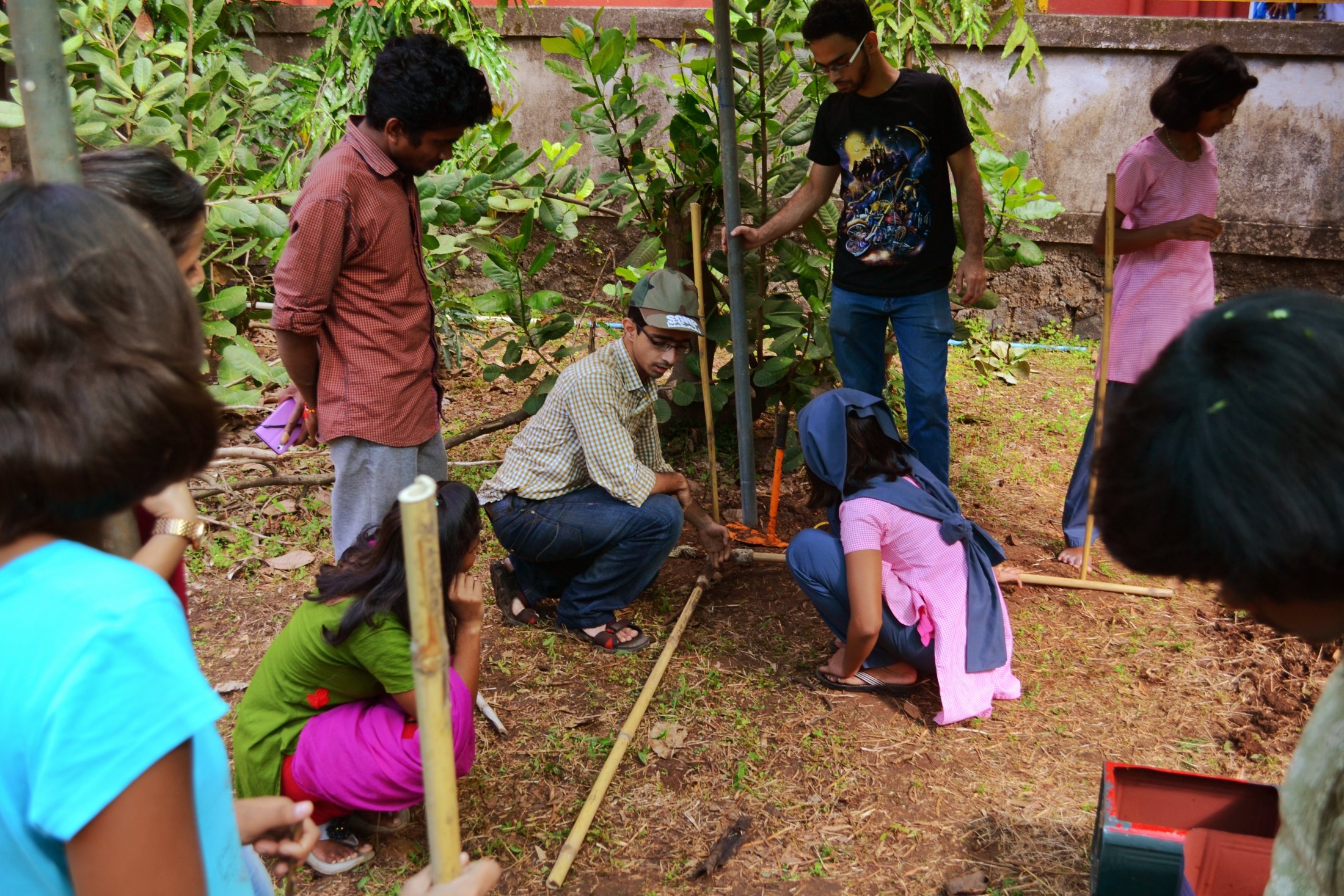
Tomorrow is an opportunity to first test this ability of the girls. Fifty-six students from an American School in Mumbai will visit the orphanage and take part in different little laboratories where they build, plant, compost and manage things, and the VOICE girls are going to assist us guiding the students during this time. Since the American School is one of AES’ biggest clients, this is a huge thing for them. Chandan and Sukriti, right now the only two permanent members of AES have been working on this project for many weeks now and are anxious to turn it into a success by tomorrow. This is also why we are staying the night today, to use all the time possible to prepare for the big day. But activities ceased a couple of hours back already and now it is just me playing with the girls. Right now they are teaching me nursery rhymes and the hand clapping that goes along with each of them. But I can feel my clothes sticking to my body from all the sweating today and my body losing its last energy by the minute. So I soon excuse myself, bid the girls good night and go to the room I share with three other guys from AES, to take a quick “shower” with the bucket we have in the bathroom and then go to bed.
The next morning everybody is soon on their feet to finish up the last preparations before the students arrive. At 10:30 three big yellow busses cramped with teenies and teachers arrive in front of the gates and soon the whole dining hall is filled with chattering kids waiting for Sukriti and teachers to split them up into groups before they go on visiting the different labs. I am co-facilitating the lab for building a solar oven. Our solar ovens are basically just black wooden boxes, which catch sunlight and focus its heat to the inside to cook a meal. The girls from VOICE have been building these boxes for the past couple of days, so four of them are with me to help the American School students in creating their own.
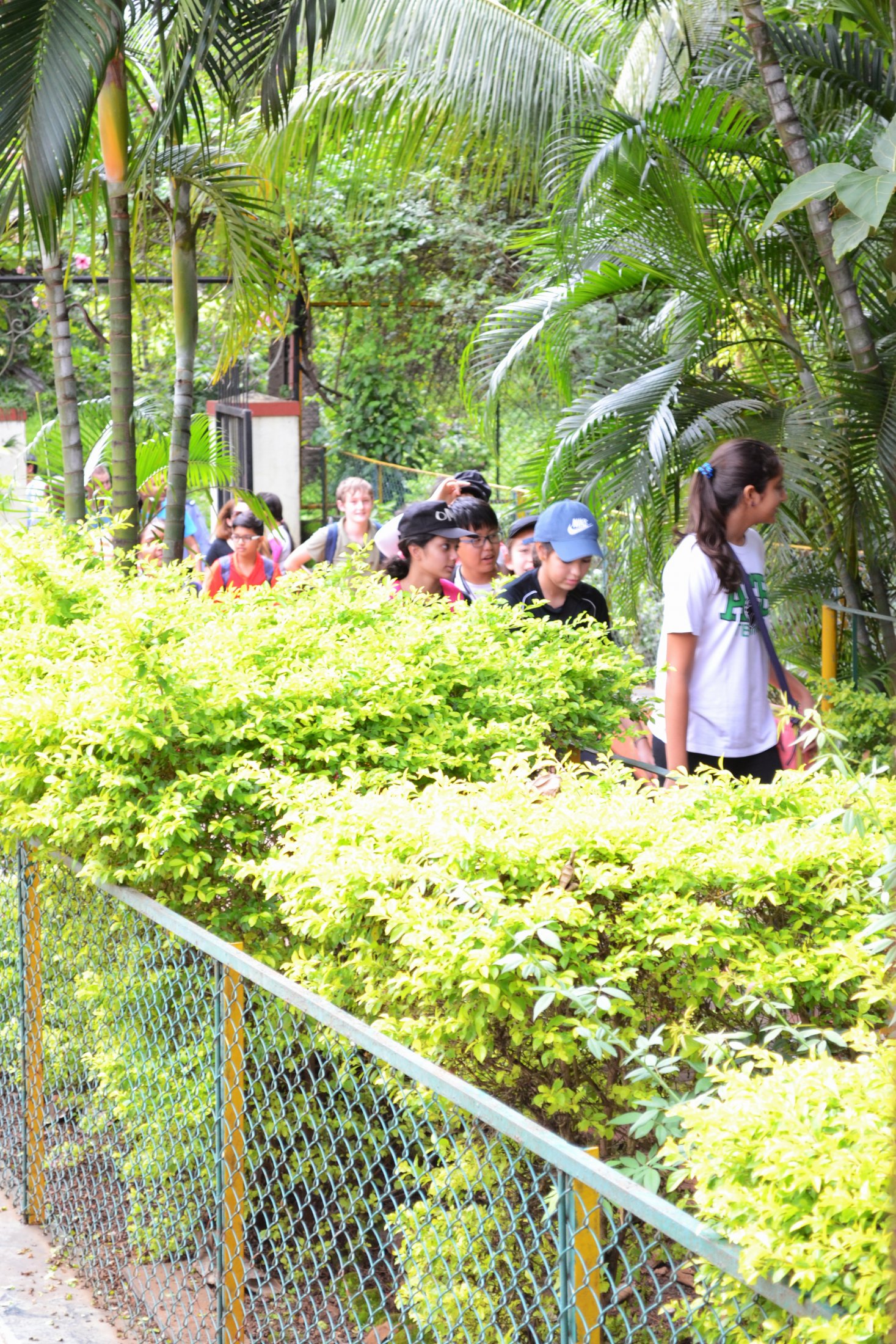
This social experiment has a couple of potentially difficult variables though. The students of the American School are in average some of the most priviliged, modern and westernized kids in the city, some of them even enjoy a lot of prestige through their parents. The VOICE girls are outcasts of society, even their own family, and among the poorest of the poor in both wealth and reputation. Also, while all of the students of the American School speak perfect English, the VOICE girls are used to speaking Hindi only and can only manage speaking and understanding a little English.
But they surprise me. The first couple of rounds Tapu, Ashvini, Paki and Vimal seem shy and quiet and only nonverbally communicate as much as necessary with the other children. But soon enough, I can catch glimpses of them talking to the American School students in simple English sentences and giving elaborate instructions on how to build the solar ovens. While the situation still feels very exceptional and fragile, you can make out potentials of some of the girls becoming comfortable with their new role as a communicator for what they have learned. The American School students seem to enjoy themselves as well and one or two even ask questions about this facility and AES’ work. That is all we could have hoped for, so two hours later, as all the students have left the orphanage again, we are all quite satisfied with the outcome of this endeavour. The girls, too, are mostly upbeat and proud of their performance and we leave them still excited from their cross-cultural experience, as we clean up the lab sites and hit the road again.
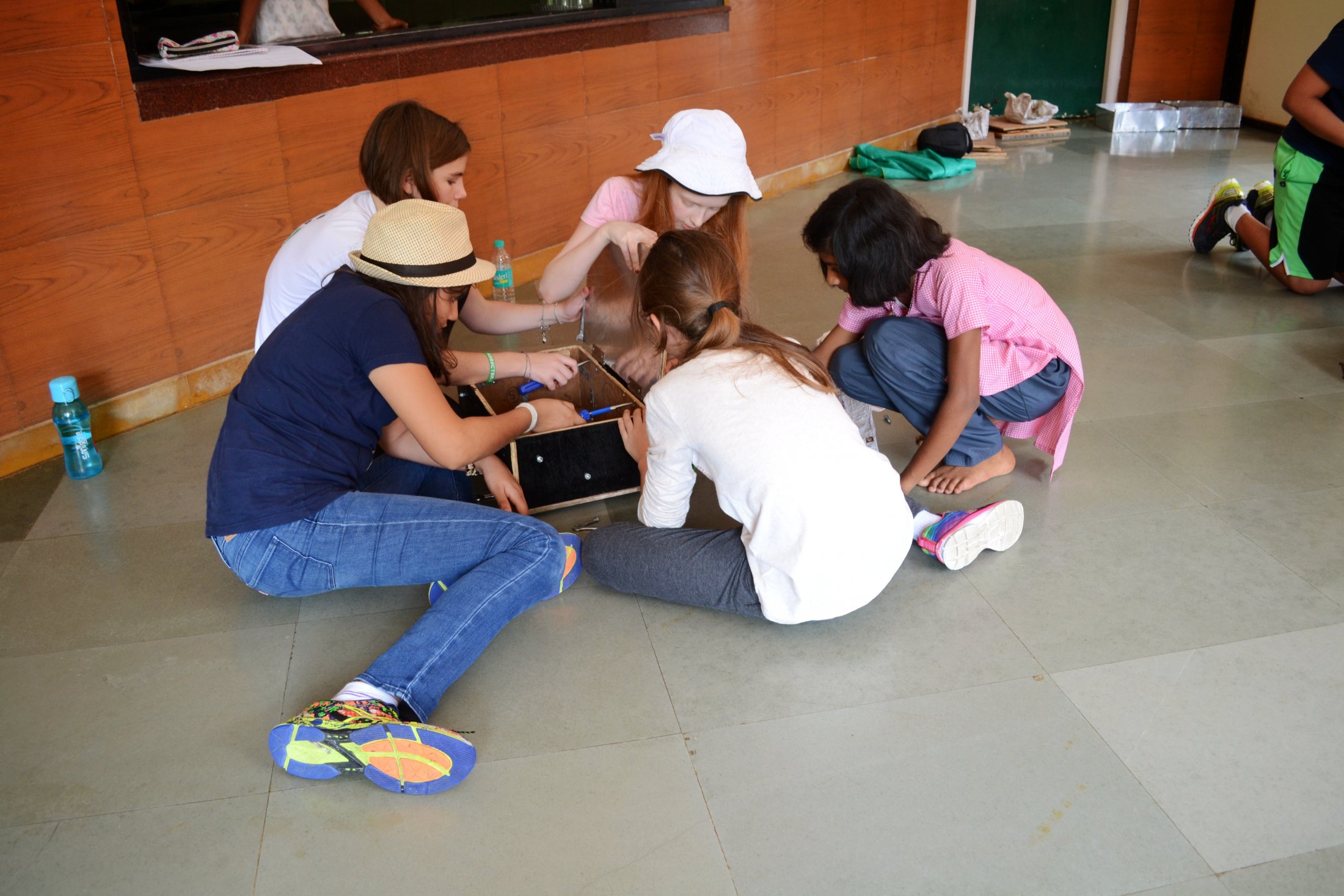
AES visits the orphanage 3-4 times a week, so saying goodbye today doesn’t feel too hard. However, I still can’t wait to be there again, to see and play with the girls and learn a new nursery rhyme or two. It is a very welcoming contrast to urban Mumbai daily life: horrible traffic, constantly high noise levels, air and street pollution. This is the part of my India experience which I currently have to work on. I am looking for more relaxed places, convenient shopping opportunities and easy ways of transport and sustenance. And for a little company along the way.
The thing that leaves me optimistic about my situation, though, is the fact that I still get the feeling I am able to change those factors. I simply can’t believe that I already experienced everything good this city has to offer me. Perhaps it’s a hidden beauty I have to discover, maybe just as much as a place to start at. Right now this first crib I was born into leaves me bored and frustrated. But the great big playground might be just around the corner! Let’s check!

Hallo,lieber Matthes, dein letzter Absatz überrascht mich: dein Bericht über deine Tätigkeit mit den Waisenkindern klingt nicht so, als ob du frustriert bist, im Gegenteil, ich hatte den Eindruck, dass dir die Arbeit Spaß und du auch das Gefühl hast, sinnvolle Arbeit zu machen. Du bist doch ganz am Anfang deiner Aufgabe, sicher kommen noch viele Herausforderungen auf dich zu. So wie ich dich kenne, wirst du schon dafür sorgen, dass es spannend (und sinnvoll, = challenge) bleibt. Danke sehr für deine ausführlichen Berichte, wir profitieren hier alle von deinen Abenteuern. Ganz liebe Grüße von deiner Oma Ingrid.
Liebe Oma,
nein, die Arbeit mit den Mädchen von VOICE ist alles andere als frustrierend. Ich bekomme sehr unmittelbares positives Feedback, unser Kommen löst immer eine große Begeisterung aus und am Ende jedes Besuches steht häufig die halbe Belegschaft des Waisenheims an den Toren, um uns zum Abschied zuzuwinken. Ich bin noch gespannt, welche Inhalte ich schließlich vermittele – im Moment ist AES von letzter Woche noch etwas im Ausnahmezustand. Das wird sich also noch zeigen, kommt aber sicher ganz automatisch.